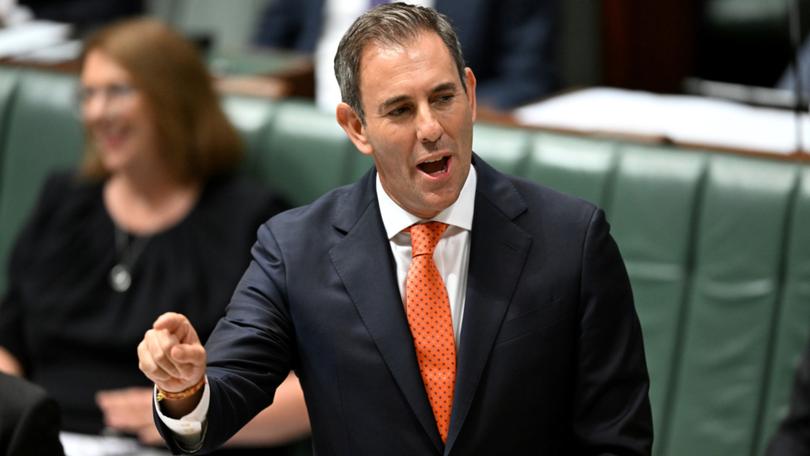OECD urges interest rates be kept on hold in Australia and Federal Government to invest in productivity growth
The RBA has been encouraged by yet another key global economic body to keep interest rates on hold to combat rising inflation, while the Federal Government has been urged to tackle lagging productivity growth.

Australia’s Reserve Bank has been encouraged by yet another key global economic body to keep interest rates on hold this year to combat rising inflation, while the Federal Government has been urged to tackle lagging productivity growth and make medium-term reforms to push the economy through a sluggish period.
Those are among the key recommendations by the Organisation for Economic Development, which on Thursday detailed its latest outlook for the world economy.
In line with forecasts from the International Monetary Fund last week, the OECD expects economic growth of just 1.5 per cent in Australia this year, but tips an recovery to 2.2 per cent next year, with household and business spending to be dampened by the accumulated effect of rising interest rates.
Sign up to The Nightly's newsletters.
Get the first look at the digital newspaper, curated daily stories and breaking headlines delivered to your inbox.
By continuing you agree to our Terms and Privacy Policy.The unemployment rate is forecast to reach 4.3 per cent next year (up from 3.8 per cent in March) but the OECD expects some services inflation — one of the RBA’s chief concerns this year — will remain sticky, and there is a risk another rate rise will be needed to push it lower.
The RBA next meets on Tuesday but is widely tipped to keep rates on hold. Major bank economists do not expect any cuts until at least November.
The latest assessment of Australia’s economic prospects comes less than two weeks ahead of Treasurer Jim Chalmers’ next Federal Budget, and amid calls for cost-of-living relief, particularly for the most vulnerable Australians.
More broadly, the OECD suggested the world economy is lifting, with inflation likely to cool faster than expected in some countries.
The world economy is forecast to grow 3.1 per cent this year — that’s an increase from 2.9 per cent expected just three months ago — with China, India and the US improving.
The OECD concedes conflicts in the Middle East and persistent price increases may yet push the economy from its more steady levels, but said risks were becoming “better balanced”.
“The OECD has warned against any complacency with substantial uncertainty remaining on the path ahead,” Dr Chalmers said.
“This is an important reminder that governments need to strike careful balances between getting inflation under control and supporting growth.”
Dr Chalmers reiterated the Federal Government expects a second surplus in this month’s Budget but said pressures were building not easing.
“The May Budget will continue our record of responsible fiscal management, provide cost of living relief without adding to inflation, and lay the foundations for growth through a Future Made in Australia,” he said.
The OECD has also urged productivity improvements by slowing growth in National Disability Insurance Scheme costs, greater flexibility in land zoning to allow new businesses to enter the economy and grow, aligning product standards to other advanced economies and cutting barriers to labour mobility, such as unnecessary occupational licensing and non-compete clauses.
